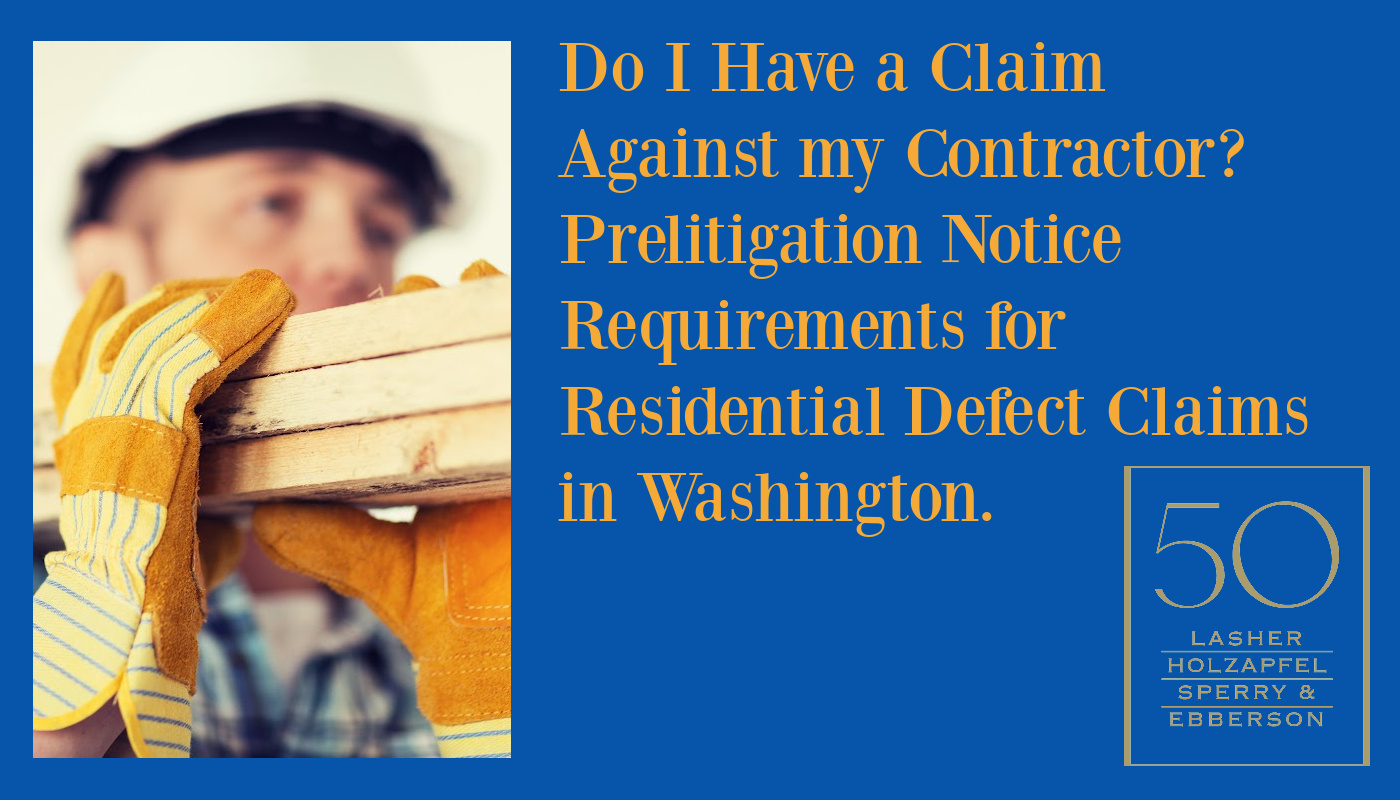Do I Have a Claim Against my Contractor? Prelitigation Notice Requirements for Residential Defect Claims in Washington

Posted on January 29, 2024 by Joseph Evans
When faced with a residential construction defect problem—such as water intrusion, poor workmanship, or material/design deficiencies—Washington homeowners are often left wondering whether they have a claim, who is at fault for the construction issues, and what to do if they believe a claim exists. These are complicated questions that can get even more complicated if the homeowner is required to provide notice of the alleged defects prior to taking legal action. Homeowners considering litigation against any residential construction professional may be required to follow Washington’s prelitigation requirements or otherwise risk having their lawsuit dismissed. In 2002, the Washington legislature adopted a mandatory prelitigation process with the stated intent “to preserve adequate rights and remedies to homeowners;” however, the prelitigation notice obligation was intended to encourage resolution prior to seeking court involvement.
The notice requirements for construction defect actions are codified under RCW Chapter 64.50., et seq. Specifically, the chapter pertains to owners who have claims against construction professionals—meaning, contractors, subcontractors, builders, architects, etc.—for problems that relate to, (1) the new construction of residential dwellings; or, (2) the substantial remodel of a dwelling. RCW 64.50.010. If the statute applies, this prelitigation process requires that a homeowner first provide notice to the offending construction professional at least forty-five (45) days prior to filing a lawsuit. The notice must contain sufficient detail to allow the construction professional to determine the general nature of the claim that is being made. The construction professional then has twenty-one (21) days to serve a written response on the homeowner. That response must contain one of the following: (1) a proposal to inspect/repair the alleged defects, (2) an offer to compromise or settle the claim prior to litigation, or (3) a statement disputing the claim.
If the construction professional disputes the claim, the homeowner is free to proceed with a lawsuit immediately. Although, if the construction professional responds with a request to inspect/repair or settle the dispute, the homeowner has two options: accept or reject the offer. If the offer is rejected, the homeowner must then provide written notice to the professional that his offer/request is denied. Afterwards, the homeowner may proceed with filing a lawsuit. If the homeowner would like to consider the offer to inspect/repair, then the homeowner must allow the professional access to inspect the alleged defect. This can sometimes create issues because many homeowners do not trust the individual to continue to perform work after discovering a defect. Following any such inspection, the construction professional has fourteen (14) days to: (1) offer to remedy the defect at no cost; (2) offer to settle via payment; or, (3) refuse to remedy the defect. The homeowner has thirty (30) days to accept the proposal or proceed with a lawsuit after written notice.
Failure to comply with the notice obligations and statutory requirements can severely impact your claim and cause delay. A residential construction defect is a frustrating, difficult, and often expensive problem for any homeowner to face. It is important to consider speaking with someone knowledgeable if you believe you may have a claim against a construction professional. To that end, the Litigation team at Lasher is available and ready to help.

